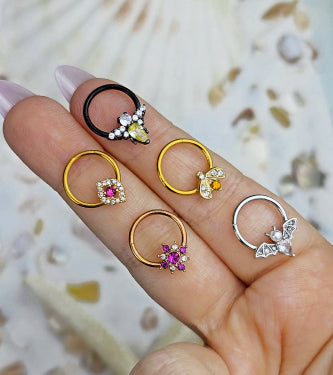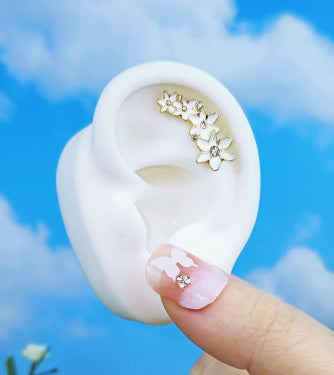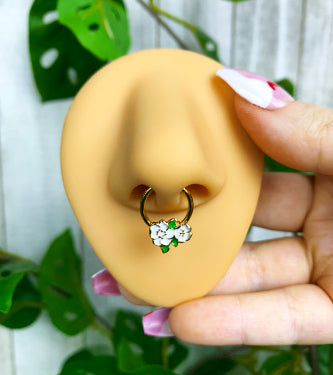Piercing: Prior to the needle your mouth will be thoroughly cleansed, usually with clear disinfectant or some form of mouthwash. Then a pair of forceps and a hollow needle will be used to perform the piercing itself. Depending on the preference of your piercer, the exact spot where the piercing will be placed may or may not be marked with a surgical pen. Some persons hardly feel any pain during the piercing process and others put it on par with any other piercing in terms of discomfort; it all depends on individual anatomy in relation to piercing placement.
Aftercare: Within about 48 hours of being pierced, the tongue will begin to swell, and talking or eating certain foods may be slightly difficult or uncomfortable. Like most oral piercings, the tongue piercing will heal relatively quickly though. Cleansings or rinses with saline or special mouthwash are common aftercare practices, and often need to be performed multiple times daily. Avoidance of smoking, lip gloss, and alcohol consumption are also encouraged.
Jewelry: The vast majority of tongue piercings will be worn with some type of straight barbell, possibly with dangles, hoops, or embellishments. Some prefer internally threaded barbells for their ease of use, and those with allergies will generally require non-metallic materials like PTFE or bioplast.
Style Variations: For most individuals the tongue can safely be pierced multiple times, sometimes up to five or six in a row. There are also horizontal piercings of the tongue (usually close to the tip), and sets of two piercings next to eachother, which is often referred to as “viper bites.”
Wanna see a real live tongue piercing happen? Then be sure to check out our YouTube page for piercing videos and more.







